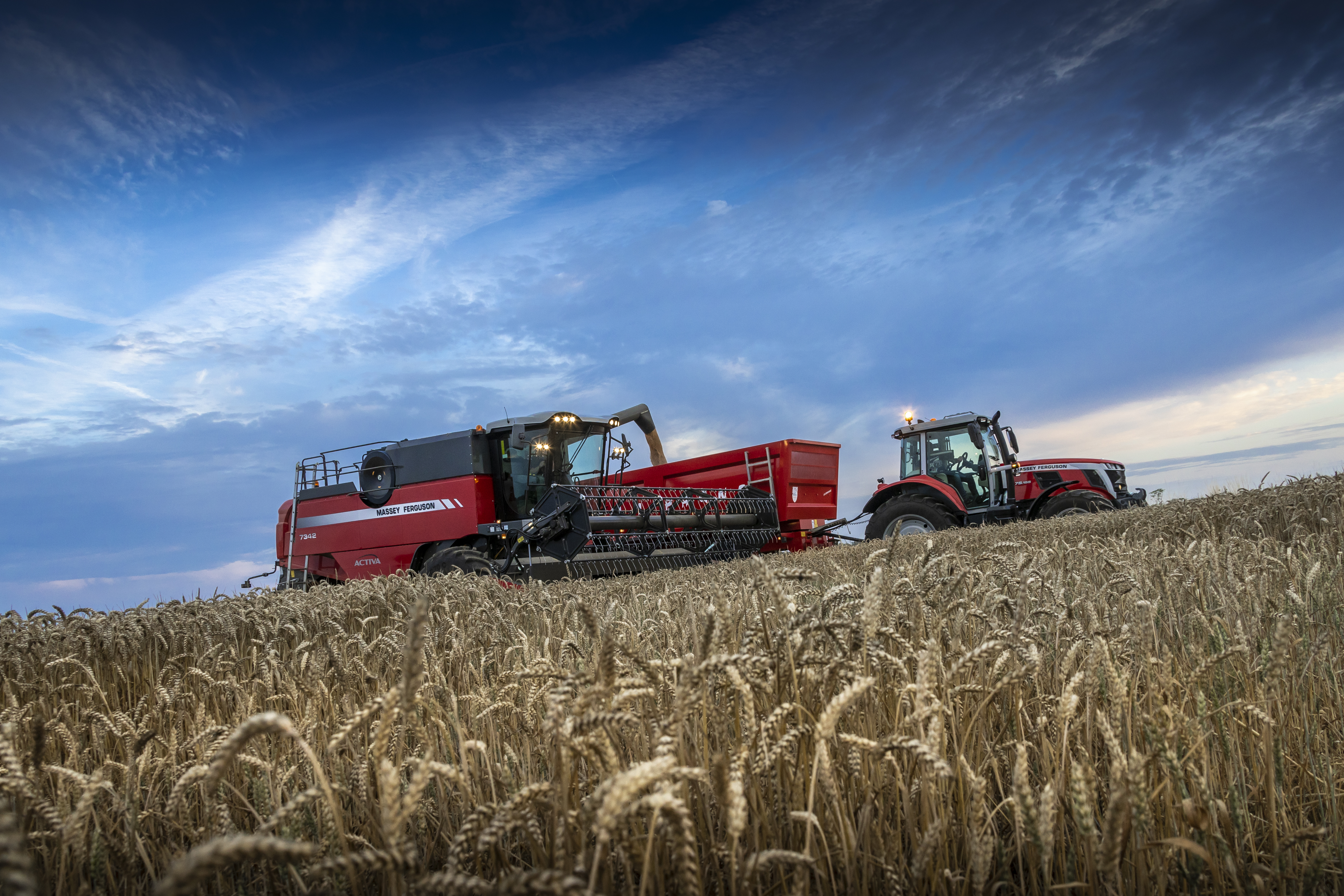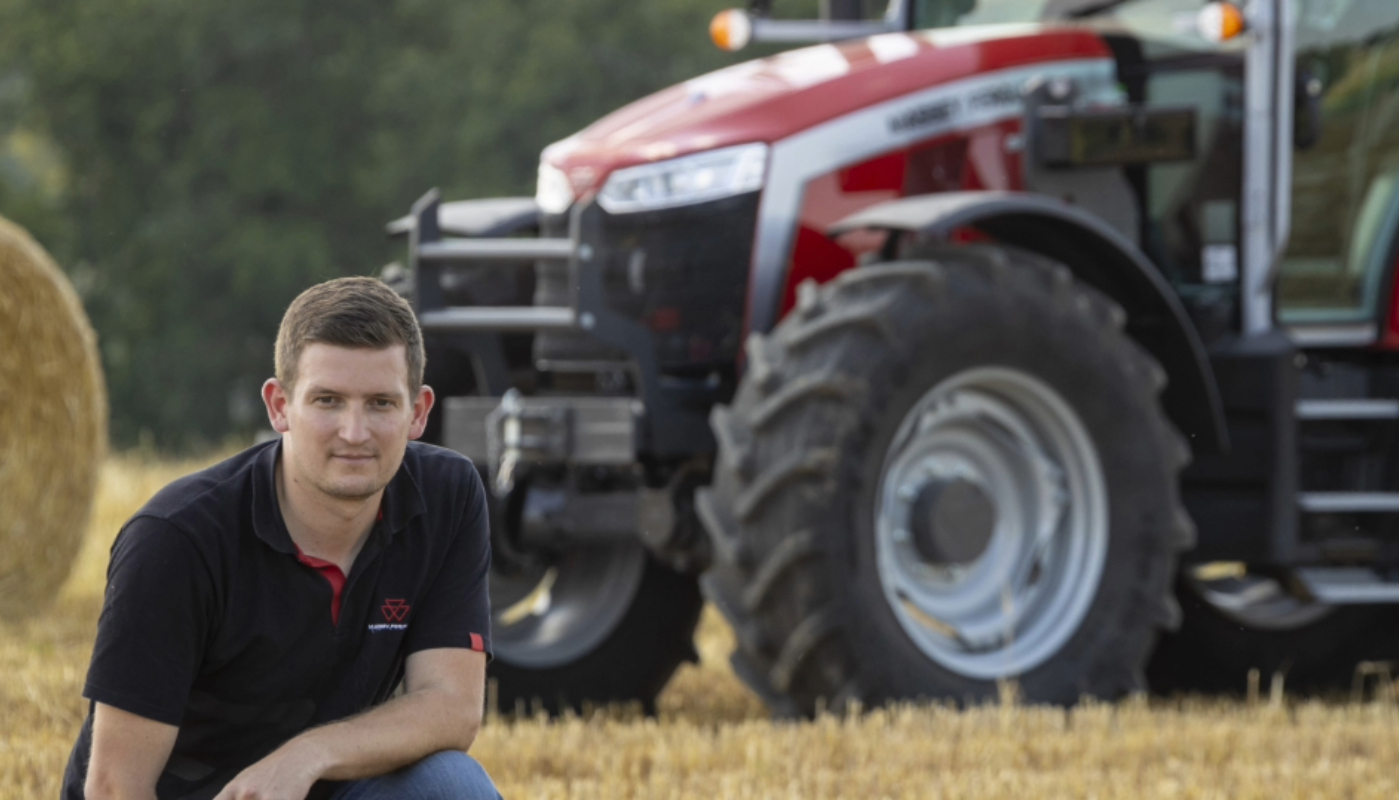Tire Selection Tips To Maximize Your Investment
Let’s talk tires. Tire selection might not be high on your priority list when spec’ing a new tractor. There are probably a few other features you are more eager to include. But there’s no denying the importance of tire selection when it comes to efficiency, sustainability and total cost of ownership. Whether you’re looking at a whole new tractor or just need a new set of wheels, matching tires to your application can provide the best ROI. We’ll look at several types of tires to help you determine the best set for your unique operation.
Best Tread for Tractor Tires
There are several tread styles available, and each provides certain benefits. Anyone who’s been around a tractor will recognize the R1 or bar-lug-style tread. This is the traditional ag tire. Our compact tractor lineup, including the highly versatile Massey Ferguson GC1700 Series, comes standard with R1 tread. We also offer an R1W tread as our standard tread for our utility and HHP tractors, including our classic Massey Ferguson 2600 H and our innovative Massey Ferguson S Series lineup. The W stands for wet. What this means is our bar is slightly higher than a traditional R1 for better traction in wet or loose soil.

Example of an R1 or bar lug tread (left) and block tread (right).
For farmers who do a lot of road transportation, we offer the Nokian TRI 2 tire. The tread on these tires is similar to that of an all-terrain truck for less rolling resistance and better fuel efficiency. This design also results in less vibration and noise at high transport speeds. TRI 2 tires come with a higher initial cost, but certain design features make them worth the investment for certain farmers. They feature a harder rubber than our standard ag options for better wear life and total cost of ownership. Thicker sidewalls also provide better handling for an all-around better operator experience during road transport. TRI 2 tires are also gentler on crop stubble, making them a great fit for commercial hay operations.
Difference Between Radial and Flexion Tires
All Massey Ferguson tractors, from the MF 4700 Series up to our powerful Massey Ferguson 8700 S Series, come standard with radial tires. This design incorporates steel cords running at 90 degrees to the direction of travel, or radially. This allows radial tires to more efficiently carry load with interior air pressure. The design also provides sturdier construction than traditional bias ply tires, along with better balance and less vibration for a better operator experience in the field and on the road.
To combat compaction and provide a more sustainable operation, Massey Ferguson also offers several flexion tire options. These tires are designed to carry load with sidewalls rather than air pressure. This means farmers can carry the same load with less pressure, resulting in a larger footprint and less compaction, or heavier loads at the same pressure for increased productivity. Farmers can choose from IF (increased flexion) tires capable of carrying 20% less pressure or VF (very high flexion) tires capable of carrying 40% less pressure.
 The difference between radial, IF and VF tire footprints.
The difference between radial, IF and VF tire footprints.
Flexion tires are a higher initial investment, but for those operating in low, wet areas or those looking to minimize compaction, they can offer a long-term, cost-effective solution.
Tire Maintenance Tips
Regardless of which tires you use, proper tire maintenance helps ensure the longevity of your investment. Here’s a quick list of our top tire tips.
- Maintain proper PSI for your tractor and tire type. This information is found in your owner’s manual. You can also reach out to your local Massey Ferguson dealer.
- Check PSI regularly for optimum performance. It’s especially important to check PSI with season/weather changes.
- Do not fill tires with fluid. This practice negates the benefits of modern radial tires. It can also put extra stress on your axle and drivetrain and make your tires more vulnerable to impact damage.
- If your operation requires ballasting, we recommend wheel weights. These are specifically designed to work with your tractor to minimize stress and unnecessary wear.
 Tire Tips From Massey Ferguson
Tire Tips From Massey Ferguson
While tires might often be taken for granted, they are an important part of your farming success. Talk to your local Massey Ferguson dealer to ensure you’re starting the season on the right foot — or, rather, tire.























Share